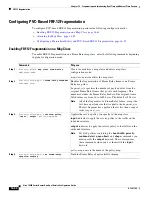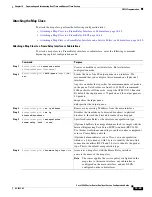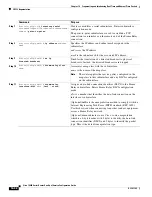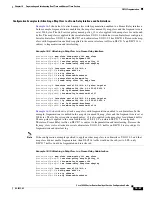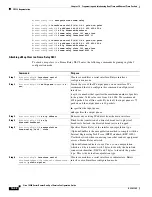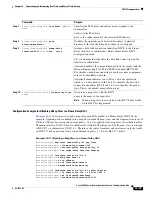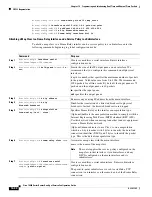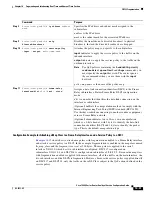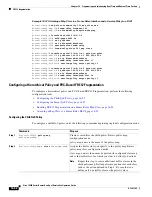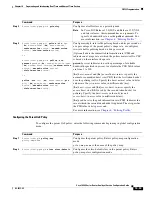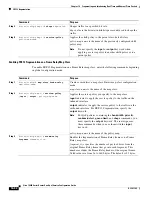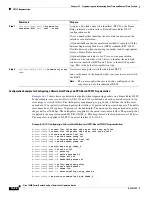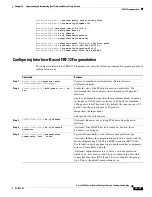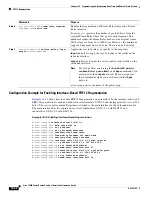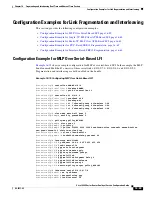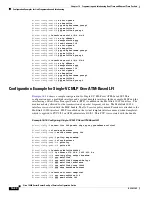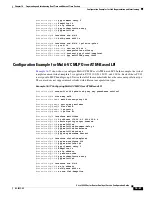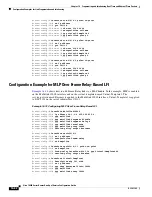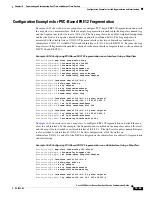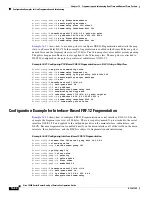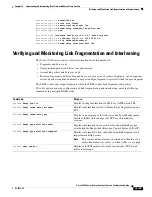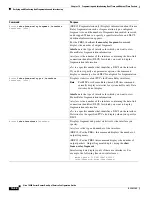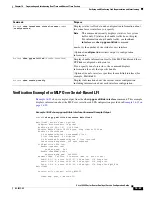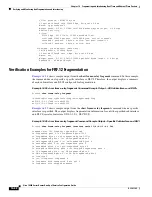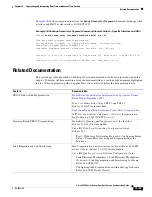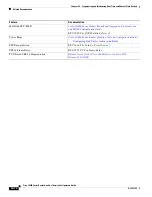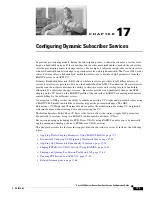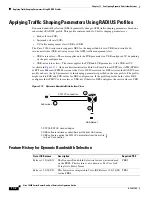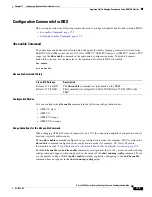
16-58
Cisco 10000 Series Router Quality of Service Configuration Guide
OL-7433-09
Chapter 16 Fragmenting and Interleaving Real-Time and Nonreal-Time Packets
FRF.12 Fragmentation
Configuration Example for Enabling Interface-Based FRF.12 Fragmentation
Example 16-14
shows how to enable FRF.12 Fragmentation on an interface. In the example, end-to-end
FRF.12 fragmentation is enabled on the main serial interface 5/0/0/1:0 and the fragment size is set at 200
bytes. The service policy named Premium is attached to the main interface in the outbound direction.
The main interface has two subinterfaces: serial subinterface 5/0/0/1:0.1 with DLCI 27 and
subinterface 5/0/0/1:0.2 with DLCI 28.
Example 16-14 Enabling Interface-Based Fragmentation
Router(config)#
interface serial 5/0/0/1:0
Router(config-if)#
hold-queue 4096 in
Router(config-if)#
no ip address
Router(config-if)#
no ip directed-broadcast
Router(config-if)#
encapsulation frame-relay
Router(config-if)#
frame-relay fragment 200 end-to-end
Router(config-if)#
service-policy output Premium
Router(config-if)#
interface serial 5/0/0/1:0.1 point-to-point
Router(config-subif)#
ip address 192.168.1.1 255.255.255.0
Router(config-subif)#
no ip directed broadcast
Router(config-subif)#
frame-relay interface-dlci 27
Router(config-subif)#
interface serial 5/0/0/1:0.2 point-to-point
Router(config-subif)#
ip address 192.16.2.1 255.255.255.0
Router(config-subif)#
no ip directed broadcast
Router(config-subif)#
frame-relay interface-dlci 28
Step 6
Router(config-if)#
frame-relay fragment
fragment_size
end-to-end
Enables the fragmentation of Frame Relay frames on a Frame
Relay interface.
fragment_size
specifies the number of payload bytes from the
original Frame Relay frame that go into each fragment. This
number excludes the Frame Relay header of the original frame.
Valid values are from 16 to 1600 bytes. However, the minimum
supported fragment size is 44 bytes. There is no default value.
Step 7
Router(config-if)#
service-policy
{
input
|
output
}
policy-map-name
Applies the service policy you specify to the map class.
input
indicates to apply the service policy to the traffic on the
inbound interface.
output
indicates to apply the service policy to the traffic on the
outbound interface.
Note
For QoS policies containing the
bandwidth
,
priority
,
random-detect
,
queue-limit
, and
shape
commands, you
must specify the
output
keyword. The router ignores
these commands when you use them with the
input
keyword.
policy-map-name
is the name of the policy map.
Command
Purpose

